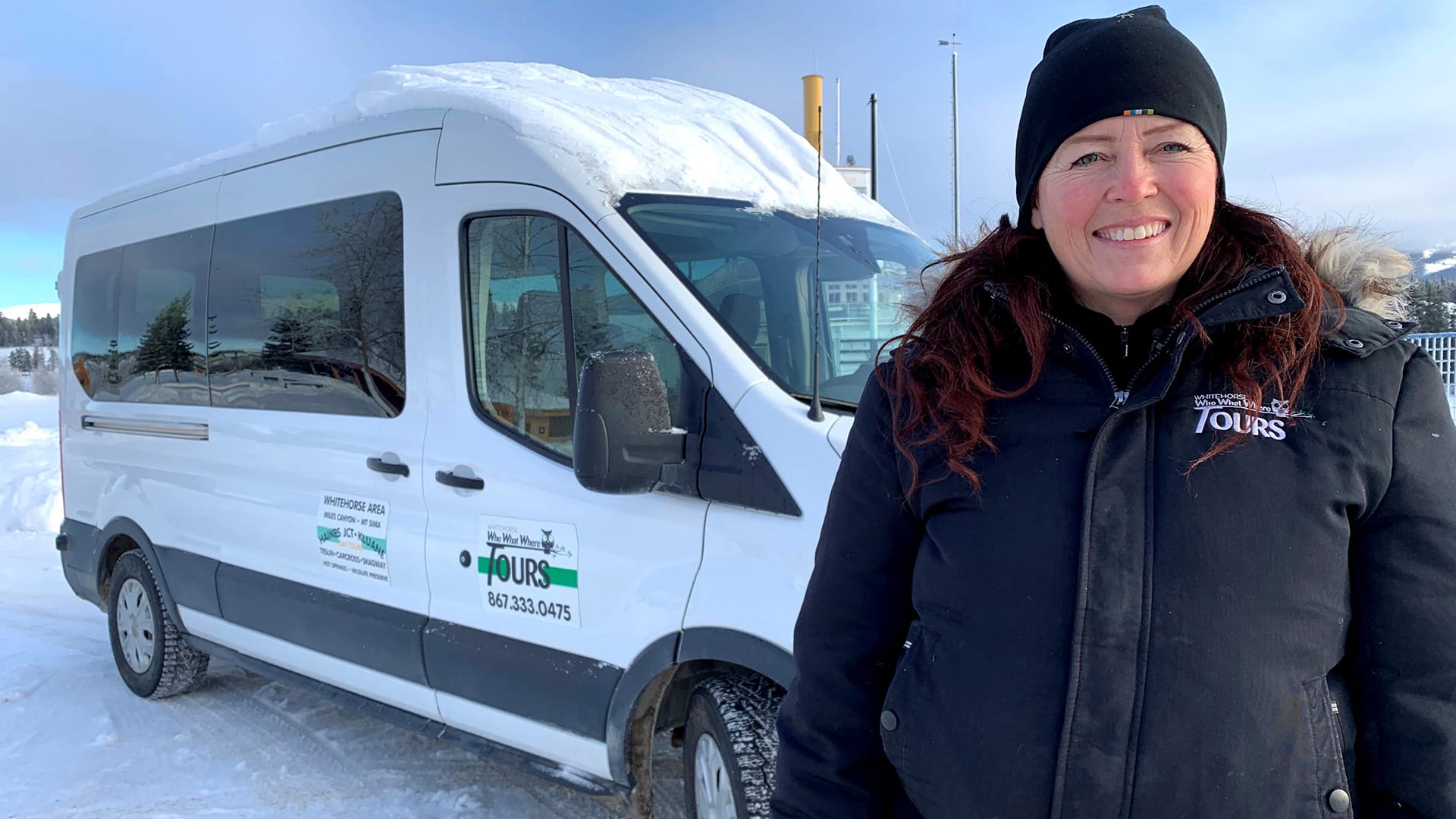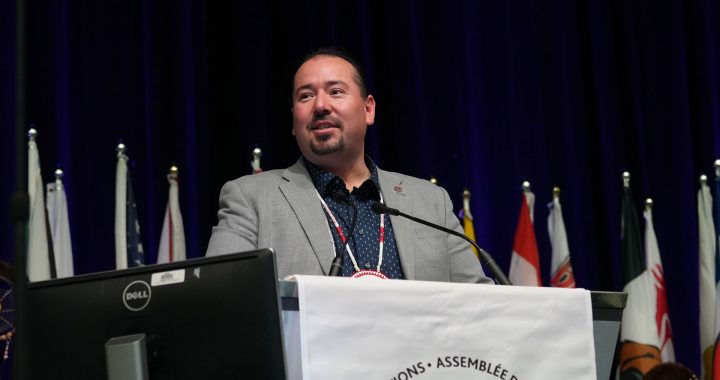At this time of year, Teena Dickson is usually busy transporting cruise passengers between Alaska and the Yukon.
But COVID-19 has upturned her business.
“I have done three tours since last March, and I (usually) average three to ten tours a day.”
Dickson is Chipewyan and is the owner of Who What Where Tours (WWWT) in Whitehorse, which provides a range of tour services, including interpretive day tours and transport to and from southeast Alaska and the Kluane region in the Yukon.
Her business relies heavily on Alaskan cruise ship passengers that dock in Skagway, Alaska, and travel inland into the Yukon.
Around 80,000 Alaskan cruise ship passengers travel to the Yukon each year, totalling about 16 per cent of the territory’s visitation numbers, according to the Yukon government.
“Cruise ship numbers, they bring in larger groups, and when you pick up a group of nine, ten (people) at a hotel, that is amazing revenue for a day tour,” Dickson says.
“There’s opportunity for not just myself but many operators, restaurants and hotels that accommodate the cruise ship traffic.”
But because of pandemic travel restrictions, only small cruise ships with less then 100 passengers were allowed to dock in Alaskan ports last year.
To make matters worse, almost all Alaskan cruises scheduled for 2021 have been postponed until at least late this spring.
A recent decision by the federal government isn’t helping matters.

Earlier this month Transport Canada announced it would extend its ban on cruise ships entering Canadian ports until Feb.28, 2022. The ban applies to all cruise vessels carrying more than 100 people. This ban was first issued in March 2020 and was set to expire on Feb.28, 2021.
This ban is expected to further hurt the Alaskan cruise industry, as the United States’ maritime regulations stipulates that all foreign and U.S. cruise vessels traveling between two U.S. ports must make an immediate stop in a foreign country like Canada.
Alaskan cruises typically stop in B.C. as they travel north towards Alaska. But because cruise vessels carrying more than 100 people are still prohibited from operating in Canadian waters, large cruise ships headed for Alaska are unable to dock there.
Now, tourism operators like Dickson have been forced to make massive cuts, and are relying on grants to survive.
“We’re used to staff and guides in our home, we’re feeding them in the backyard, they become part of your family, and now we’ve basically laid them all off. I’m back to what I was when I started the company,” she says.
Dickson also says the ban on cruise ships is negatively affecting Indigenous tourism businesses that rely on cruise passengers, as they are often eager for cultural experiences.
“As Indigenous people we talk about so much connection with the land and wildlife and our people that we hope that we’ve kind of given them a little bit of exposure and that they are going to come back,” she says.
“It creates opportunity for local Indigenous operators to partner with other operators and expand what they have to offer.”
Gifts shops likewise affected
It’s also been a tough 11 months for Crystal Isaac, director of gift shop Bearpaw Gifts, which has two locations in Whitehorse and Carcross.
“Our Carcross store had a 100 per cent decrease in sales because it didn’t even open this year,” she says.
Isaac is from the Okanagan Indian Band, and her mother owns and operates the two stores, which are both heavily dependent on cruise ship tourists.
“So that was hard for us because we also still had to maintain the building whether we were making money or not,” she says.
She says the Whitehorse location has suffered as well.
“Being on Main Street right kind of by more tourists hotels, we just didn’t have a lot of flow this year.”
Isaac says the stores have been fortunate to not have to lay any employees off for the time being, though she says the Carcross location may not survive much longer if COVID travel restrictions continue.
“I think for our business in Carcross, unfortunately, we will have to close that location, which is half of our business, so we would essentially lose half of our business due to COVID.”
Help is available
Jeanie Mclean, Yukon Minister of Tourism and Culture, says “up until 2019, our industry was doing very, very well, and then the bottom dropped out. Everything is completely down.”
“There’s a lot of emotion, and there’s a lot of, I think, a tremendous grieving process, really, that has happened with our businesses.”
McLean says around 500,000 people visit the Yukon each year, generating $357,000,000 dollars in revenue.
She couldn’t say how much tourism revenue has been lost due to COVID-19, or when the territory can expect to recover.
However, Mclean did say the government is working hard to help tourism operators prepare for reopening, like the recently released $15 million dollar tourism relief and recovery plan that will be phased out over the next three years.
The plan includes standardized safe travel protocols for the protection of visitors and residents, a “concierge” service to assist tourism businesses in navigating and maximizing the Yukon government’s COVID-19 business supports and support for the development and implementation of a place brand for the whole of Yukon.
There are also grants and funds available for tourism operators, including the Yukon Business Relief (YBR) program with a maximum of $100,000; the tourism sector accommodations supplement, which is a supplement of the YBR and can provide operators with accommodations up to $400 per room each month, up to the point of breaking even; and, ELEVATE, a program run in conjunction with Yukon University and other partnerships meant to encourage tourism operators to “pivot” their business to something more sustainable in the long term.
“We’ve been able to support businesses to stay whole and to get through and survive. At this time, those are absolutely crucial partnerships to help businesses move through this,” Mclean says.
As for “pivoting”, Bearpaw Gifts has refocused on selling beading supplies, while WWWT has “pivoted” towards shuttling locals between Yukon communities, though Dickson says it’s far lass profit compared to the predictability of cruise ship passengers.
While the Yukon 2021 tourism looks grim at the moment, Dickson is hopeful she’ll be able to cater to the international market again.
“Tourism’s my life, it’s what I do, I live and breathe it. I worked way, way too hard to give this up that quick.”










